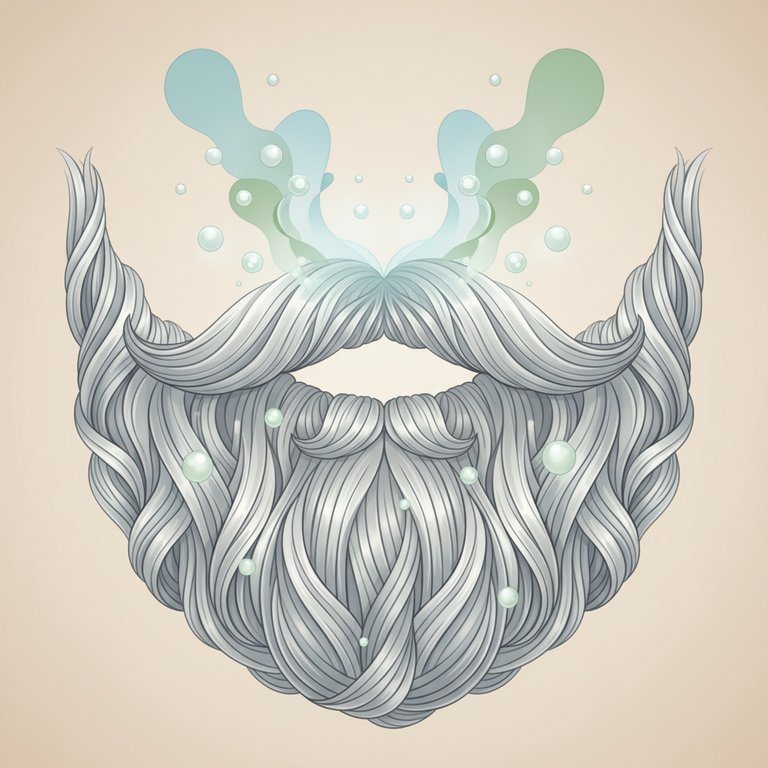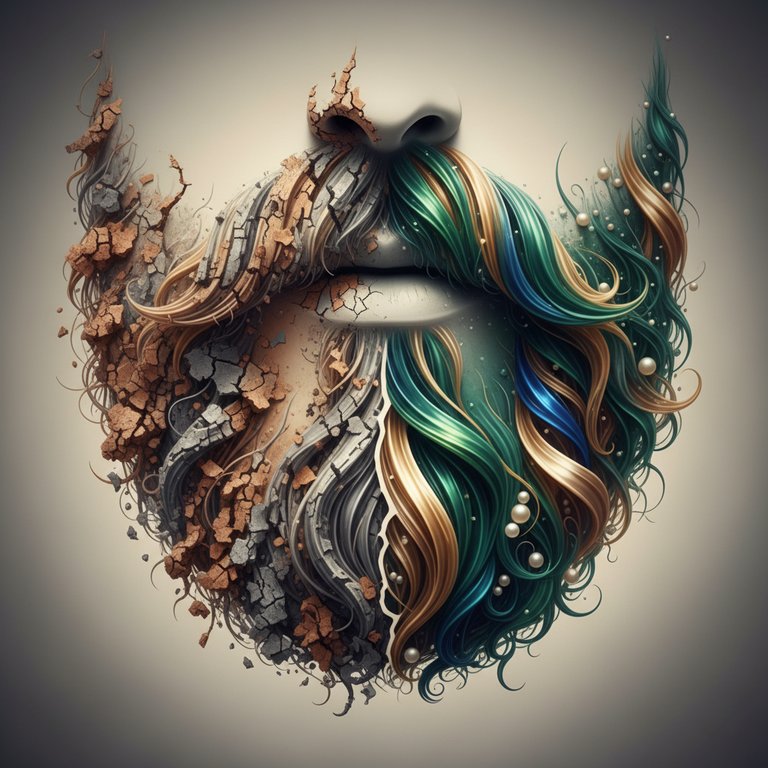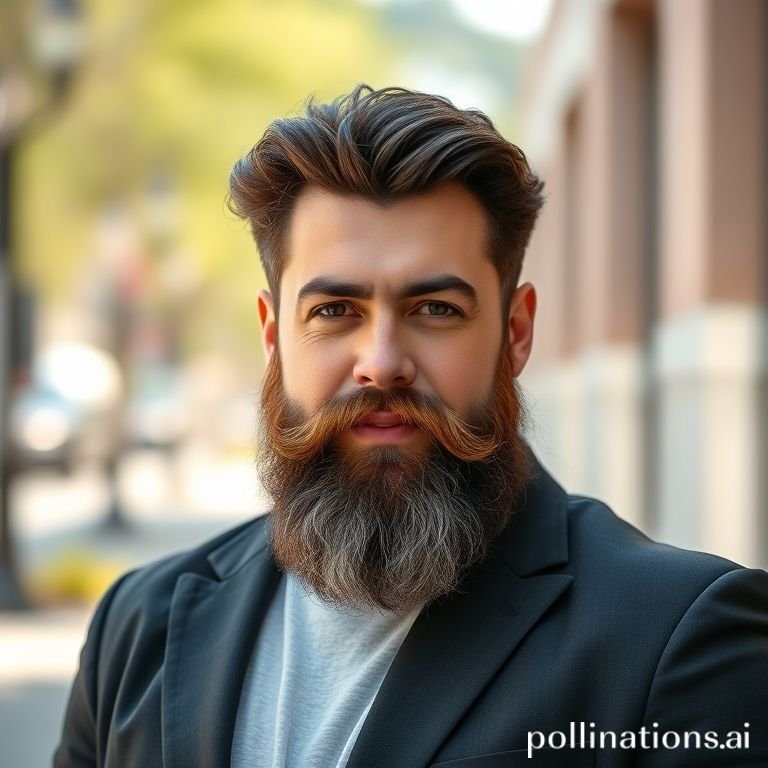Hey there, fellow beard enthusiasts! You've meticulously grown your magnificent facial hair, you've mastered the art of grooming, and you're rocking that bearded look with confidence. But sometimes, a little question might nag at the back of your mind, especially after a particularly messy meal: "Does wearing a beard affect my dental hygiene?"
It's a super common query, and a totally valid one! After all, your beard sits right there, front and center, often mingling with your mouth. So, let's dive into this topic with a friendly chat, separating fact from fiction and giving you some solid tips to keep both your beard and your mouth area feeling fresh and fantastic.
Disclaimer: This blog post is for informational purposes only and focuses on grooming and cosmetic aspects of facial hair. It does not offer medical advice or health recommendations. Always consult with a qualified professional for any health-related concerns.
The Beard & Mouth Connection: More About Grooming Than Gums
When we talk about beards and the mouth, it's less about direct dental impact and more about the practicalities of keeping your entire face, including your facial hair, clean and tidy. Think of your beard as an extension of your face – just like the hair on your head, it needs regular attention, especially when it's near a high-traffic zone like your mouth!
A common concern is food getting trapped in your beard. And let's be honest, it happens! A rogue crumb, a splash of coffee, or a bit of sauce can easily find its way into your glorious whiskers. While this doesn't directly harm your teeth, it can certainly make the area feel less fresh and might even lead to some unwanted aromas if left unattended. It's all about maintaining overall cleanliness and comfort around your mouth.
My personal take? It's less about the beard causing dental issues and more about the beard requiring a little extra vigilance in your post-meal clean-up routine. It's like having a lovely carpet in your dining room; you just need to be a bit more mindful about spills!
Food Traps and Freshness: Addressing the Real Concerns
Why Does Food Seem to Love My Beard?
It’s no secret that a longer, fuller beard can act as a bit of a net for food particles. Whether it’s a crumb from your morning toast or a drop of soup, your beard can sometimes catch what your mouth misses. This isn’t a sign of poor hygiene, but rather a natural consequence of having hair around your eating area. The key is to be prepared and have a quick cleanup strategy.
Think about it: when you don't have a beard, those crumbs just fall. With a beard, they might decide to take a scenic detour through your chin forest. This can affect the general freshness of your beard around your mouth, and if not cleaned, might lead to a lingering smell that's not exactly pleasant. It’s all about maintaining that fresh, clean feeling throughout the day.
Keeping Your Mouth Area Fresh: Beyond Brushing
While brushing your teeth and using mouthwash are cornerstones of oral freshness, your beard adds another layer to your routine. A clean mouth can still be overshadowed by a beard that's holding onto yesterday's lunch. So, the focus shifts to ensuring your beard is as clean and fresh as your breath.
It's about a holistic approach to your face. You wouldn't skip washing your hair, right? The same goes for your beard, especially the part that's constantly interacting with food and drink. Maintaining a fresh beard around your mouth contributes to an overall feeling of cleanliness and confidence.
Your Step-by-Step Guide to a Fresh Beard & Mouth Area
Ready to tackle those pesky crumbs and keep your beard in top-notch condition around your mouth? Here’s a simple, step-by-step guide:
-
Post-Meal Wipe-Down: This is your first line of defense. After every meal, especially messy ones, grab a napkin or a damp cloth and gently wipe around your mouth and through your beard. Pay attention to the areas directly below your lower lip and on your chin. A quick dab can prevent a lot of lingering issues.
-
Rinse and Repeat (When Possible): If you're at home, a quick rinse of your beard under the faucet with plain water can work wonders. Just splash some water on your beard around your mouth, gently massage, and pat dry. This helps dislodge any stubborn particles.
-
Regular Beard Washing: Incorporate regular beard washing into your grooming routine. Use a dedicated beard wash a few times a week (or more, depending on your activities and beard type). Make sure to really work the wash into the hair around your mouth and chin, lathering well, and rinsing thoroughly. This ensures deep cleaning and removes any accumulated residue.
-
Condition and Moisturize: After washing, always follow up with a beard conditioner or balm. This keeps your beard soft, manageable, and less prone to trapping particles. A well-conditioned beard is easier to clean and maintain.
-
Comb or Brush Daily: A daily comb or brush session isn't just for styling; it also helps to remove loose food particles, dead skin, and keeps your beard neat. Pay extra attention to combing through the hair around your mouth.
Smart Tips & Tricks for a Pristine Pout-Area Beard
-
Mindful Eating: This might sound obvious, but taking smaller bites and being a bit more conscious while eating can significantly reduce the amount of food that ends up in your beard. Lean forward slightly when eating to let gravity be your friend!
-
Straws for Drinks: For beverages like coffee, juice, or smoothies, using a straw can help bypass your beard and keep liquids from soaking into your whiskers. It’s a simple trick that makes a big difference.
-
Beard Bibs (Yes, They Exist!): For particularly messy meals (think ribs or spaghetti), some bearded folks swear by a small 'beard bib' or even just tucking a napkin into their collar to protect their precious facial hair. It might sound funny, but it works!
-
Carry a Mini Grooming Kit: A small comb and a travel-sized beard oil or balm can be a lifesaver. A quick comb-through after lunch and a dab of oil can refresh your beard and keep it looking sharp.
-
Don't Forget the Underside: Food and drink can sometimes get trapped on the underside of your beard, closest to your neck. When washing or wiping, make sure to get underneath your chin and jawline too.
Your Beard & Mouth FAQ – Answered!
Let's tackle some of those burning questions you might have, straight from real searches!
Q: Does food get stuck in my beard more easily with a long beard?
A: Absolutely, yes! The longer and fuller your beard, the more surface area and 'nooks and crannies' there are for food particles to get cozy. It’s just a simple matter of physics. This is why those post-meal wipe-downs and regular washing become even more important for longer beards. It doesn't mean your beard is inherently 'dirtier,' just that it needs a bit more attention.
Q: How do I keep my beard clean around my mouth after eating or drinking?
A: The best method is immediate action! After you finish eating or drinking, gently wipe your beard with a napkin or a damp cloth, paying close attention to the area right around your lips and chin. If you're near a sink, a quick rinse with plain water and a pat dry can also do wonders. For drinks, consider using a straw to minimize contact with your beard.
Q: Can a beard make my breath smell worse?
A: A beard itself doesn't directly affect your breath, which comes from your mouth. However, if food particles, drink residue, or environmental odors (like smoke) get trapped in your beard and aren't cleaned out, they can definitely create an unpleasant smell that lingers around your face. So, while it's not your breath, a dirty beard can certainly contribute to an overall less-than-fresh aroma. Regular washing and grooming are key to keeping both your beard and the air around it smelling great.
Q: Should I use beard oil or balm close to my lips?
A: Yes, you absolutely can! Beard oil and balm are designed to nourish both your beard hair and the skin underneath. Applying them close to your lips is perfectly fine and can help keep the hair in that area soft and conditioned. Just make sure you're using products specifically formulated for beards and that you don't overdo it. A little goes a long way, and you certainly don't want a greasy feeling right under your nose.
Q: What's the best way to clean my beard after drinking coffee or eating messy foods?
A: For coffee, a quick wipe with a damp cloth or a rinse with water immediately after drinking is usually sufficient to prevent staining and lingering smells. For messy foods like spaghetti or soup, a more thorough approach is best: first, blot away any excess food with a napkin, then use a damp cloth to wipe the affected area. If possible, a full beard wash with beard shampoo and conditioner is ideal to ensure all residues are completely removed, followed by drying and applying beard oil or balm.
Q: Will a beard make my face feel dirtier around my mouth?
A: It can, purely from a tactile and sensory perspective, if you're not diligent with your grooming. If food or drink gets caught in your beard, it can definitely feel a bit sticky or unclean. The presence of hair itself can also make you more aware of moisture or particles around your mouth. However, with a consistent cleaning and grooming routine, your beard should feel just as fresh and clean as the rest of your face, if not even softer!
Conclusion: Keep It Clean, Keep It Awesome!
So, does wearing a beard affect your dental hygiene? Not in the way you might initially think. Your beard isn't going to cause cavities or gum problems. However, it absolutely requires a bit more attention to cleanliness and grooming around your mouth to ensure everything feels fresh, looks sharp, and smells great.
By incorporating a few simple habits into your daily routine – like quick post-meal clean-ups, regular washing, and consistent conditioning – you can easily enjoy your magnificent beard without any worries about its proximity to your mouth. Keep that beard epic, keep it clean, and keep rocking that confident smile!
Remember: This content is for general informational purposes only and is not intended to be a substitute for professional advice. Always seek the advice of a qualified professional for any health or medical concerns.



